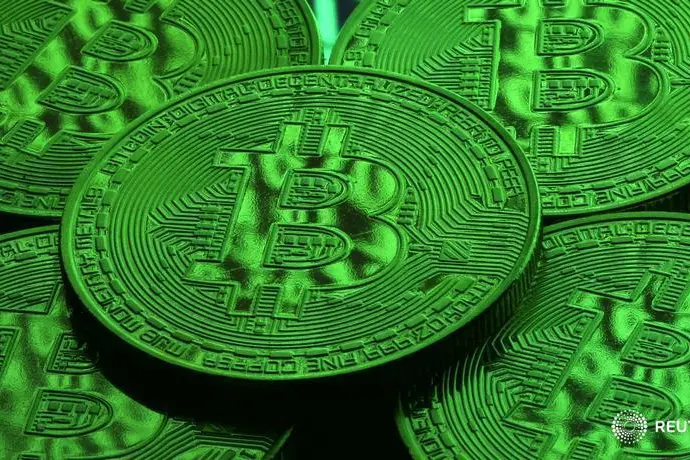PHOTO
Plus, the SEC charges Genesis and Gemini
It’s been another busy week for crypto news. Market watchers noticed a perplexing rise in the price of bitcoin, but the industry is still focused on the losses, job cuts and increasing scrutiny from regulators and authorities around the world.
Top cryptocurrencies bitcoin and ether have risen unexpectedly so far this year. Bitcoin climbed to its highest in four months on Tuesday, up almost 30% on the year. But at just over $21,000, it’s still a long way from the $69,000 peak seen in 2021. Analysts say a shift back to high risk assets more broadly could explain the rise, in the absence of any clear catalyst. A number of meme stocks also gained.
But for crypto firms, the outlook is mired in uncertainty. Singapore-based Crypto.com announced its second round of job cuts in six months, reducing its workforce by 20%. It blamed “negative economic developments” and the collapse of FTX, which “significantly damaged trust in the industry.” This comes after its rivals Coinbase and Huobi also announced plans to cut one in five staff.
The problems at crypto lender Genesis show no signs of being resolved either: the company owes creditors more than $3 billion, according to a person familiar with the matter. Its parent, Digital Currency Group, is considering offloading parts of its venture capital holdings to raise money, the Financial Times reported. Winklevoss-owned crypto exchange Gemini had partnered with Genesis for its “Gemini Earn” product, which allowed users to loan their crypto assets to Genesis in exchange for interest, and on Thursday the SEC charged both Genesis and Gemini with illegally selling securities to hundreds of thousands of investors through this program, which it says violated securities law.
Gemini said it looks forward to defending itself; Genesis didn’t immediately reply to a request for comment.
Meanwhile in Europe, another crypto lender comes into the spotlight: Bulgarian prosecutors said last week they had launched an investigation into illegal activities by crypto lender Nexo. Prosecutors raided 15 sites in the capital Sofia and four Bulgarians have been charged with participating in an organized crime group set up to launder money and commit tax and computer fraud. Bulgaria said the investigation had started several months ago, in coordination with U.S., British and other counterparts. Nexo denied any wrongdoing.
* FTX latest: More than $5 billion in liquid assets have been recovered but the extent of customer losses is still unknown. FTX said $415 million worth of crypto has been stolen in hacks since the bankruptcy filing. Bankman-Fried also wrote a blog post.
* Giant exchange Binance gained registration with Sweden’s financial watchdog. Unlike licensed financial services providers, registered companies are obliged to provide the Swedish watchdog with information on anti-money laundering measures but little more.
* Crypto hedge funds ended 2022 down almost 50%, according to index provider BarclayHedge. The conversation around trading cryptocurrencies has become polarized, with "true believers" in crypto "cranking up their evangelizing to 11,” BarclayHedge said.
* Illicit use of cryptocurrencies hit a record $20 billion in 2022, according to blockchain analytics firm Chainalysis. Trading associated with sanctioned entities increased dramatically.
* Crypto-focused bank Silvergate reported a net loss of $1 billion in the fourth quarter of 2022, after investors pulled out more than $8 billion in deposits. Shares rose.
Bitcoin is above the $20,000 level for the first time since November and trade volumes are at the highest in nearly two months. But market watchers are warning about reading too much into the move.
* From Davos: CEO of Circle said major markets need to introduce new statutory definitions of digital assets, Anthony Scaramucci said his firm is betting on a sustained turnaround in cryptocurrency markets in 2023. Hong Kong crypto gaming developer Animoca Brands said it wants to grow its portfolio of companies by more than 30%.
* A Miss Universe contestant from El Salvador wore a bitcoin-inspired gold bodysuit. Here’s a Reuters special report on El Salvador from last November.
(Reporting by Elizabeth Howcroft, Editing by Louise Heavens)





















